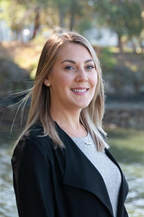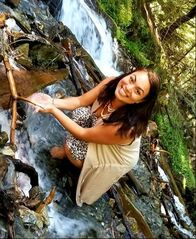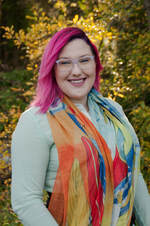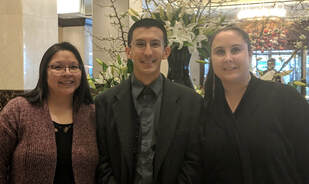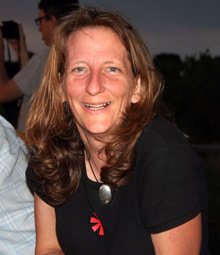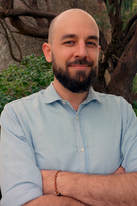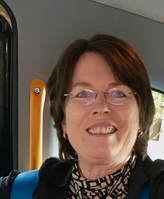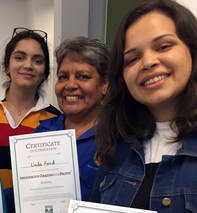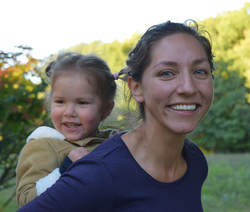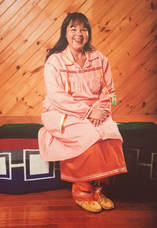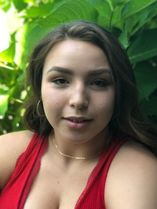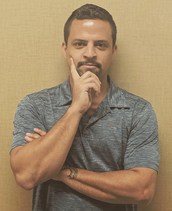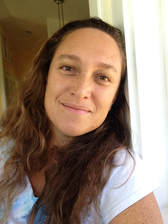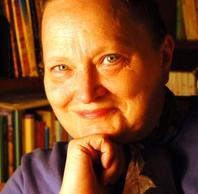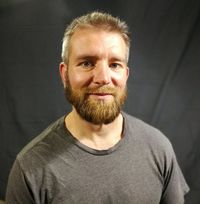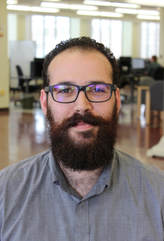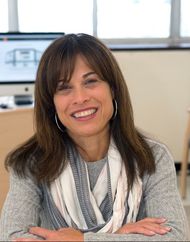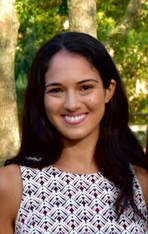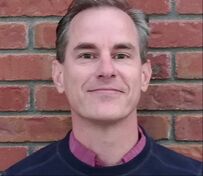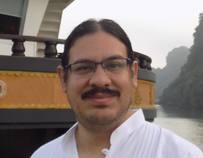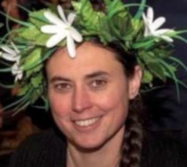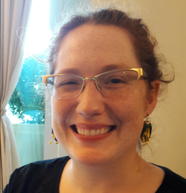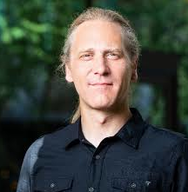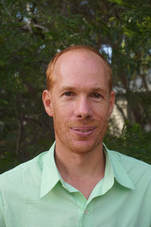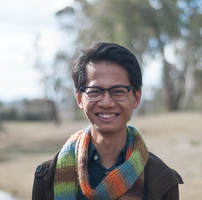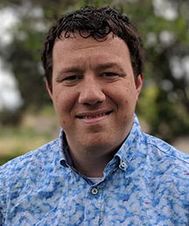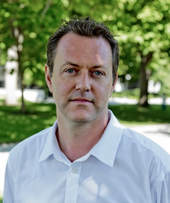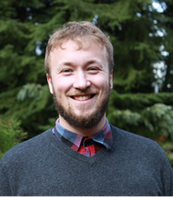Talk Story Sessions and Workshops
Following a format introduced at the ICLDC 2017, we are including a 90-minute block on Thursday, Friday and Saturday to be dedicated to two alternative conference activities: Workshops and Talk Story sessions.
Talk Story Sessions
Introduced at ICLDC 2017 in response to participant feedback, ICLDC 2019 will again have “Talk Story” sessions. These discussions will be led by an expert discussant and limited to 20-30 attendees per session. Each Talk Story will be repeated on three days of the conference, allowing ample opportunity for conference attendees to participate in the Talk Story sessions of their choice. Talk Story sessions are meant to be fully interactive for participants, rather than a one-directional presentation of information. This format may be particularly appropriate for discussion of the challenges of technology and its role in language reclamation and language documentation.
Workshops
We also welcome proposals for Workshops on topics broadly relating to language and technology, particularly where it impacts communities. Each 90-minute workshop will be held twice over three days of the conference, allowing multiple opportunities for interested attendees to participate. Workshops will accommodate a larger number of participants and are intended to be more presentational and instructional in style than the Talk Story sessions. Appropriate workshop topics will be related to the conference theme and may include instruction in use of software tools, development of new software tools, development of web technologies, novel methods for digital hardware tools, etc.
In the past, conference guests have registered for Talk Story and Workshops ahead of time however this year attendance will be open until presentation rooms are filled.
Talk Story Sessions
Introduced at ICLDC 2017 in response to participant feedback, ICLDC 2019 will again have “Talk Story” sessions. These discussions will be led by an expert discussant and limited to 20-30 attendees per session. Each Talk Story will be repeated on three days of the conference, allowing ample opportunity for conference attendees to participate in the Talk Story sessions of their choice. Talk Story sessions are meant to be fully interactive for participants, rather than a one-directional presentation of information. This format may be particularly appropriate for discussion of the challenges of technology and its role in language reclamation and language documentation.
Workshops
We also welcome proposals for Workshops on topics broadly relating to language and technology, particularly where it impacts communities. Each 90-minute workshop will be held twice over three days of the conference, allowing multiple opportunities for interested attendees to participate. Workshops will accommodate a larger number of participants and are intended to be more presentational and instructional in style than the Talk Story sessions. Appropriate workshop topics will be related to the conference theme and may include instruction in use of software tools, development of new software tools, development of web technologies, novel methods for digital hardware tools, etc.
In the past, conference guests have registered for Talk Story and Workshops ahead of time however this year attendance will be open until presentation rooms are filled.
Talk Story Sessions:
|
|
Britt Dunlop graduated from the University of Victoria with a Master of Education in Indigenous Language Revitalization in 2016. Britt has worked in the Language Programs department at First Peoples’ Cultural Council since 2014 and is passionate about the revitalization and maintenance of all Indigenous languages. As a Language Programs Associate at First Peoples’ Cultural Council, Britt provides support to communities with their language revitalization projects and initiatives.
Jacqueline Jim comes from W̱SÁNEĆ I W̱LEMI-the emerging people and the people of the sea. She grew up and currently works in W̱SÁNEĆ, theterritory of her father’s family. She is a SENĆOŦEN immersion teacher in the SENĆOŦEN immersion survival school in Brentwood Bay, B.C. and has been teaching for the last seven years. She also works for the First Nations Education Steering Committee as a First Nations language coach, supporting the implementation of language curriculum in First Nations schools across B.C.
She has completed the Masters of Indigenous Language Revitalization (MILR) program at the University of Victoria in December 2016. She wrote an auto-ethnographic account of her twenty-two years of language learning. She has had an interest in learning SENĆOŦEN for the majority of her young life which has led her to become a language activist, teacher, researcher, coach and scholar in the last eight years. |
Kyra Fortier is the FirstVoices Coordinator/Trainer for the First Peoples’ Cultural Council of British Columbia (as of November 2018). Kyra comes from a background in Linguistics and Language Revitalization, having completed her MA in Linguistics at the University of Victoria in December 2018. Prior to attending UVic, Kyra completed her BA in Speech Sciences at the University of British Columbia. It was during this time that she became acquainted with members of the Gitksan community and began working to support the creation of digital dictionary materials. Her research experience is in cross-dialectal phonetic documentation and analysis of vowel systems and intonation patterns in languages of British Columbia. Kyra is passionate about teaching, accessibility in education, language advocacy, and wellness.
|
Decolonizing Indigenous Language Technologies:
Centering Communities and Their Languages in Technology
Many language documentation and reclamation technologies are inscribed with colonial norms that can be misaligned with Indigenous community needs and values. Emerging from the ideas of Natives4Linguistics, a project that aims to decolonize Linguistics by centering Indigenous community and values in the research questions, methods, and protocols of linguistic science (see https://natives4linguistics.wordpress.com/), this Talk Story will explore how existing and future language technologies can center Indigenous community definitions of language and support language reclamation initiatives. Its goals include identifying effective models and bringing people with diverse experiences together.
If possible, we recommend that participants review the following article about the intersections between Indigenous language revitalization and technology in advance of the Talk Story:
Galla, Candace Kaleimamoowahinekapu. 2016. Indigenous language revitalization, promotion, and education: Function of digital technology. Computer Assisted Language Learning 29(7), 1137-1151. https://doi.org/10.1080/09588221.2016.1166137
Presenter(s): Dr. Wesley Leonard, Dr. Megan Lukaniec , and Adrienne Tsikewa
Centering Communities and Their Languages in Technology
Many language documentation and reclamation technologies are inscribed with colonial norms that can be misaligned with Indigenous community needs and values. Emerging from the ideas of Natives4Linguistics, a project that aims to decolonize Linguistics by centering Indigenous community and values in the research questions, methods, and protocols of linguistic science (see https://natives4linguistics.wordpress.com/), this Talk Story will explore how existing and future language technologies can center Indigenous community definitions of language and support language reclamation initiatives. Its goals include identifying effective models and bringing people with diverse experiences together.
If possible, we recommend that participants review the following article about the intersections between Indigenous language revitalization and technology in advance of the Talk Story:
Galla, Candace Kaleimamoowahinekapu. 2016. Indigenous language revitalization, promotion, and education: Function of digital technology. Computer Assisted Language Learning 29(7), 1137-1151. https://doi.org/10.1080/09588221.2016.1166137
Presenter(s): Dr. Wesley Leonard, Dr. Megan Lukaniec , and Adrienne Tsikewa
Dr. Wesley Leonard is a citizen of the Miami Tribe of Oklahoma and an Assistant Professor of Ethnic Studies (Native American Studies program) at the University of California, Riverside. Supported by his PhD in Linguistics and many years of engagement in community language programs, his research focuses on Indigenous language reclamation and the cultural, legal, and pedagogical strategies through which it occurs. A strong advocate of Indigenous needs and ways of knowing, he serves as co-chair of the Natives4Linguistics project.
Dr. Megan Lukaniec is Wendat from the Huron-Wendat Nation of Wendake, Québec and an Assistant Professor of Linguistics at the University of Victoria. Since 2006, she has been working with and for her community in order to reawaken and reclaim the Wendat (Iroquoian) language, which was dormant for well over a century. Megan is interested in how linguistics can be centered around community needs for language reclamation, including how current technologies can and should support the goals of language reclamation. She serves as co-chair of the Natives4Linguistics project. She currently teaches in the Master’s of Indigenous Language Revitalization Program at the University of Victoria, and continues to work as a linguist for her band council (Conseil de la Nation huronne-wendat).
Adrienne Tsikewa (Zuni Pueblo) is a 3rd year PhD student in Linguistics at the University of California, Santa Barbara. Her research interests are language documentation, description, applied linguistics, language acquisition, socialization, socio-cultural linguistics, language revitalization and reclamation; her research focuses on Shiwi’ma (Zuni language). She earned a BA in Spanish from Colorado College in 2004 and an MA in Native American Languages and Linguistics (NAMA) from the University of Arizona in 2013. During her time at Arizona, she served as a Graduate Assistant for the American Indian Language Development Institute (AILDI). She continues to serve as a member of the Institute on Collaborative Language Research Advisory Circle (CoLang/formerly Infield) and has served as a co-chair for the 20th and 21st Workshop on American Indigenous Languages (WAIL). She serves as a logistical coordinator and point of contact for the Natives4Linguistics projects and served as the Workshop Coordinator for the Natives4Linguistics workshop held in conjunction with the 2018 annual meeting of the Linguistic Society of America.
Dr. Megan Lukaniec is Wendat from the Huron-Wendat Nation of Wendake, Québec and an Assistant Professor of Linguistics at the University of Victoria. Since 2006, she has been working with and for her community in order to reawaken and reclaim the Wendat (Iroquoian) language, which was dormant for well over a century. Megan is interested in how linguistics can be centered around community needs for language reclamation, including how current technologies can and should support the goals of language reclamation. She serves as co-chair of the Natives4Linguistics project. She currently teaches in the Master’s of Indigenous Language Revitalization Program at the University of Victoria, and continues to work as a linguist for her band council (Conseil de la Nation huronne-wendat).
Adrienne Tsikewa (Zuni Pueblo) is a 3rd year PhD student in Linguistics at the University of California, Santa Barbara. Her research interests are language documentation, description, applied linguistics, language acquisition, socialization, socio-cultural linguistics, language revitalization and reclamation; her research focuses on Shiwi’ma (Zuni language). She earned a BA in Spanish from Colorado College in 2004 and an MA in Native American Languages and Linguistics (NAMA) from the University of Arizona in 2013. During her time at Arizona, she served as a Graduate Assistant for the American Indian Language Development Institute (AILDI). She continues to serve as a member of the Institute on Collaborative Language Research Advisory Circle (CoLang/formerly Infield) and has served as a co-chair for the 20th and 21st Workshop on American Indigenous Languages (WAIL). She serves as a logistical coordinator and point of contact for the Natives4Linguistics projects and served as the Workshop Coordinator for the Natives4Linguistics workshop held in conjunction with the 2018 annual meeting of the Linguistic Society of America.
Talking about child language documentation: Experiences, challenges, methods & outcomes
This Talk Story is an interactive discussion providing an opportunity for language documentation researchers to consider ideas regarding child language data collection. It explores perceived pathways, barriers and challenges to working with children, and lays out some current practices and technologies for supporting child language documentation of lesser known languages.
Presenter(s): Dr. Barbara Kelly
This Talk Story is an interactive discussion providing an opportunity for language documentation researchers to consider ideas regarding child language data collection. It explores perceived pathways, barriers and challenges to working with children, and lays out some current practices and technologies for supporting child language documentation of lesser known languages.
Presenter(s): Dr. Barbara Kelly
Dr. Barbara Kelly is a linguist at The University of Melbourne. Her PhD, from UCSB, focused on language development through gesture. Fieldwork in Nepal resulted in a grammar of Sherpa and an interest in how language-internal grammatical pressures interact with social pressures in children's socialization toward language competence. She is intrigued by language development across different languages and cultures and her current research investigates the acquisition of Murrinhpatha, an Indigenous Australian language. Barb sees a role for documentation of child language in conservation and revitalization and aims to build resources for eliciting, recording, and documenting children’s language use in the field.
Leveraging technology to recirculate songs in endangered languages
The objectives of this talk story session:
The objectives of this talk story session:
- Discuss best-practice techniques for recording, documenting and archiving songs in endangered languages;
- Share examples of how technology has been effectively used to recirculate archival Indigenous songs, and;
- Encourage dialogue on issues and solutions in relation to online and peer-to-peer song-sharing.
|
Dr. Clint Bracknell is a Wirlomin Noongar from Western Australia’s south coast, a musician, composer and Associate Professor at Edith Cowan University. Dr Bracknell leads an Australian Research Council project aiming to recirculate and reignite performance of old Noongar songs, having been involved in Noongar language revitalisation with the Wirlomin clan (wirlomin.com.au) since 2010.
|
Dr. Linda Barwick is Associate Dean (Research) at Sydney Conservatorium of Music, The University of Sydney and has extensive experience working with Aboriginal communities on song and language projects. Since its inception, Professor Barwick has helped develop the cross-institutional research infrastructure facility PARADISEC (the Pacific and Regional Archive for Digital Sources in Endangered Cultures).
|
|
Dr. Linda Payi Ford identifies as Rak Mak Mak Marranunggu, from Kurrindju, on the Finniss River, in the Northern Territory and is currently a Principal Research Fellow at Northern Institute at Charles Darwin University. Dr Ford is a mother, an academic, a researcher, an educator and a practitioner of Indigenous traditions. Dr Ford’s daughters Emily Ford and Chloe Ford are research assistants on the Australian Research Council project New Ways for Old Ceremonies.
|
Immersing Our Homes and Relationships: A discussion of the successes and struggles of heritage language transmission
This Talk Story space serves to inform and empower second-language speakers to create, sustain and expand immersion moments throughout their homes. We will discuss what realities of language transmission we face as we raise our children in Seneca and Mohawk language, then reflect on the action and resources needed to ultimately raise future first-language speakers in our communities.
Presenter(s): Whitney Nephew, Kawenniióstha Nicole Martin, and Yeya’tón:nis Alexis Martin.
This Talk Story space serves to inform and empower second-language speakers to create, sustain and expand immersion moments throughout their homes. We will discuss what realities of language transmission we face as we raise our children in Seneca and Mohawk language, then reflect on the action and resources needed to ultimately raise future first-language speakers in our communities.
Presenter(s): Whitney Nephew, Kawenniióstha Nicole Martin, and Yeya’tón:nis Alexis Martin.
I ‘ike ‘ia ke kanaka ma kāna ‘ōlelo: ka wehewehe ‘ana i nā mana’o like ‘ole e pili ana no ka ‘ōlelo Hawai’i
Ideologies about Hawaiian Language Revitalization and ReclamationMa ka Pae ʻĀina ʻo Hawaiʻi, he ʻōlelo kūhelu ka ʻōlelo Hawaiʻi no ke aupuni "mokuʻāina". Eia naʻe, ʻaʻole nō paha pēlā kona hiʻi ʻia e ke ākea ma kona kulāiwi ponoʻī. Mai ka noho palaka a ka hoʻokae, aia nō kekahi mau manaʻo hoʻohemahema paha no ka ʻōlelo Hawaiʻi i loko o kekahi poʻe. He ālai a he keʻakeʻa ia mau mea i ka holomua a me ke ola maikaʻi ʻana o kā kākou ʻōlelo aloha ma waho aʻe hoʻi o nā kula, nā lumi papa, a me nā hale paha o ka poʻe ʻōlelo. No ke aha lā hoʻi kēia kūlana? E ʻimi noelo ana kēia ʻaha kūkā e huʻe pau aku i nā kumu e hana ʻia ai ka ʻōlelo kupa o ka ʻāina ma kēia mau ʻano, me ka pane ʻana i nā nīnau penei: He aha nā manaʻo like ʻole o ka poʻe lehulehu e pili ana no ka ʻōlelo Hawaiʻi a pehea i ulu aʻe ai? Pehea e ʻokoʻa ai ka manaʻo o ka mea i paʻa ka ʻōlelo iā ia a me ko ka mea i kiʻi ʻole aku e aʻo? No ke aha e mau nei nā manaʻo hoʻohemahema a manaʻo ʻino hoʻi? E hoʻokolokolo pū nō kākou i mea e holomua ai.
In the Hawaiian Archipelago, the Hawaiian language is an official language of the "state" government. However, at large, it is not likely valued as such in its own homeland. From indifference to contempt, there are certain damaging attitudes regarding the Hawaiian language. These are hindrances and setbacks for the progress and health of our language beyond just schools, classrooms, and the homes of speakers. Why does this exist? This talk story session seeks to uncover the reasons why the native language of this land is treated in these ways, while answering questions like: What are the various attitudes and opinions held by people regarding the Hawaiian language, and how did they come to be? How do the attitudes of those who have attained the language differ from those who have not learned? Why do these damaging and negative attitudes endure? Let us investigate, so that we may move forward.
Note: This session will be offered in English on Thursday and Friday and in Hawaiian on Sunday.
Organizer(s): Dr. Katie Drager and Haʻalilio Williams-Solomon
Presenter(s): Hina Puamohala Kneubuhl and Haʻalilio Solomon
Ideologies about Hawaiian Language Revitalization and ReclamationMa ka Pae ʻĀina ʻo Hawaiʻi, he ʻōlelo kūhelu ka ʻōlelo Hawaiʻi no ke aupuni "mokuʻāina". Eia naʻe, ʻaʻole nō paha pēlā kona hiʻi ʻia e ke ākea ma kona kulāiwi ponoʻī. Mai ka noho palaka a ka hoʻokae, aia nō kekahi mau manaʻo hoʻohemahema paha no ka ʻōlelo Hawaiʻi i loko o kekahi poʻe. He ālai a he keʻakeʻa ia mau mea i ka holomua a me ke ola maikaʻi ʻana o kā kākou ʻōlelo aloha ma waho aʻe hoʻi o nā kula, nā lumi papa, a me nā hale paha o ka poʻe ʻōlelo. No ke aha lā hoʻi kēia kūlana? E ʻimi noelo ana kēia ʻaha kūkā e huʻe pau aku i nā kumu e hana ʻia ai ka ʻōlelo kupa o ka ʻāina ma kēia mau ʻano, me ka pane ʻana i nā nīnau penei: He aha nā manaʻo like ʻole o ka poʻe lehulehu e pili ana no ka ʻōlelo Hawaiʻi a pehea i ulu aʻe ai? Pehea e ʻokoʻa ai ka manaʻo o ka mea i paʻa ka ʻōlelo iā ia a me ko ka mea i kiʻi ʻole aku e aʻo? No ke aha e mau nei nā manaʻo hoʻohemahema a manaʻo ʻino hoʻi? E hoʻokolokolo pū nō kākou i mea e holomua ai.
In the Hawaiian Archipelago, the Hawaiian language is an official language of the "state" government. However, at large, it is not likely valued as such in its own homeland. From indifference to contempt, there are certain damaging attitudes regarding the Hawaiian language. These are hindrances and setbacks for the progress and health of our language beyond just schools, classrooms, and the homes of speakers. Why does this exist? This talk story session seeks to uncover the reasons why the native language of this land is treated in these ways, while answering questions like: What are the various attitudes and opinions held by people regarding the Hawaiian language, and how did they come to be? How do the attitudes of those who have attained the language differ from those who have not learned? Why do these damaging and negative attitudes endure? Let us investigate, so that we may move forward.
Note: This session will be offered in English on Thursday and Friday and in Hawaiian on Sunday.
Organizer(s): Dr. Katie Drager and Haʻalilio Williams-Solomon
Presenter(s): Hina Puamohala Kneubuhl and Haʻalilio Solomon
|
Haʻalilio Solomon is an Instructor at the University of Hawaiʻi at Mānoa at the Hālau ʻŌlelo Hawaiʻi ʻo Kawaihuelani Center for Hawaiian Language. He is currently pursuing a doctoral degree in Linguistics. He is an avid translator for ‘ōlelo Hawaiʻi under Awaiaulu and Hoʻopulapula, and his studies involve language documentation and revitalization, as well as linguistic ideologies and attitudes surrounding ʻōlelo Hawaiʻi. He speaks several other languages as well, and his multi-lingualism shapes his pedagogical approach as well as his academic endeavors, many of which involve the documentation of the languages spoken in Polynesia.
|
Hina Puamohala Kneubuhl is originally from Maui and now splits her time between there and Aotearoa New Zealand. She holds both an undergraduate and a maters degree in ʻōlelo Hawaiʻi (Hawaiian language) from UH Mānoa, where she also worked as a lecturer. Her master's work focused on the use of the nominalizing particle ʻana by native speakers on Ka Leo Hawaiʻi. She is part owner of the clothing company Kealopiko, where she works to normalize ʻōlelo Hawaiʻi through fashion. She is also a translator in training at Awaiaulu. Hina has spoken primarily ʻōlelo Hawaiʻi to her two daughters, 5 & 7, but Te Reo Māori (Māori language) and English are also spoken in her home.
|
Workshops:
Rapid Word Collection Workshops: Why & how to do them
Presenters build on experience conducting a 2015 Rapid Word Collection (RWC) workshop to explain using FLEx https://software.sil./fieldworks/ to gather words for a dictionary. Install FLEx before you come. Workshop outline: 1) expected results, 2) roles and logistics, 3) group semantic domain word collection, 4) debrief, Q&A, referrals to lexicography resources. Presenter(s): Dr. Brenda Boerger and Jeremiah Aviel
Introduction to Mukurtu CMS: Connecting and Sharing Cultural Collections and Language Materials
Participants will receive hands-on training with the Mukurtu dictionary and other language specific features to incorporate language materials into digital heritage items and collections within Mukurtu. There will be examples of Mukurtu in use in communities, emphasizing the use of cultural protocols and language resources. Participants are encouraged to bring a laptop and digital media to use during the workshop Presenter(s): Dr. Kimberly Christen, Michael Wynne and Alana Pollack
Bloom: Now Communities Can Create Their Own Books
Come see how to easily make books in local languages using the free, award-winning Bloom software (bloomlibrary.org). Learn to adapt from thousands of existing freely-licensed books as well as make original titles. We will produce paper booklets and electronic talking books, plus learn about available print and video training materials. Presenter(s): John and Suzanne Hatton John Hatton has been a user experience designer, coder, and project manager with SIL International for 20 years. He is the designer of SayMore (language documentation), WeSay (dictionaries), Bloom (literacy), and was a principal designer of FLEx (dictionaries and morphological analysis). Living and working in Papua New Guinea and Thailand, he became passionate about enabling minority language communities to promote the development of their own languages using software custom-designed for their strengths and needs. He has an MS in Computer Science from the University of San Diego.
|
Accelerating the analysis of your audio recordings with Untrained Forced Speech Alignment
Artificial Intelligence can do a lot to help us document and study minority and endangered languages! In this workshop, we will survey the methods available and will provide an interactive demo of forced speech alignment as a way to quickly study the phonetics of an undescribed language. We will introduce software such as FAVE-align, Praat and R to quickly extract phonetic information about your language and describe its vowels. Presenter(s): Dr. Rolando Coto-Solano, Dr Sally Akevai (Ake) Nicholas, Dr. Samantha Wray, and Dr. Tyler Peterson
Transcription Acceleration for Language Documentation with ELPIS
In this workshop we will use Elpis, an open source speech to text system, to train language models and obtain automated first-pass transcriptions for languages with low quantities of data. This workshop is suitable for linguists and language workers, no machine learning experience is required. Presenter(s): Ben Foley, Daan van Esch, and Nay San
Daan van Esch is a Technical Program Manager in the Speech & Keyboard group at Google in Mountain View, California. He's worked on internationalization in this group for about six years now, and his work has been focused around building data-driven machine-learning pipelines to bring the magic of language technology to users everywhere. In addition, he is interested in helping the language documentation community apply state-of-the-art computational methods in order to accelerate annotation and transcription work across many languages.
How to Make a 'Mother Tongues' Digital Dictionary
In this hands-on workshop, participants will be walked through each of the steps needed to create an online digital dictionary for any language using the Mother Tongues platform of open-source tools. Participants will be asked to prepare their data before we meet and will leave the workshop with their very own online dictionary. Important preparations for participating in this workshop: In this hands-on workshop, participants will learn the simple steps needed to create an online digital dictionary for any language using the Mother Tongues platform of open-source tools. Participants MUST bring a laptop to the workshop (iPads / tablets are not sufficient), have an active Google account and GitHub account, have prepared a Google Sheet with 20 words in their chosen language and share their email address with the instructors before we meet. All of these requirements are outlined in detail in the ‘Getting Ready’ section here: http://bit.ly/ICLDC_MTD_2019 Presenter(s): Dr. Mark Turin and Aidan Pine
|
